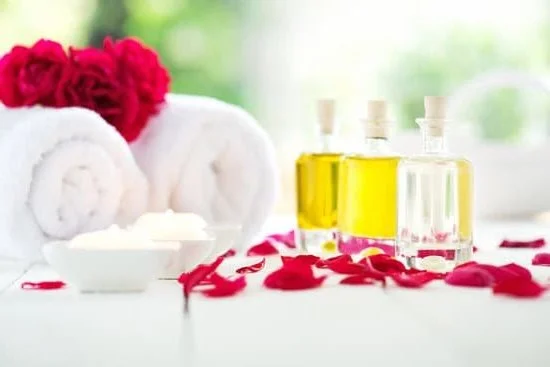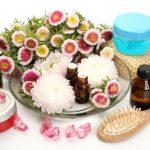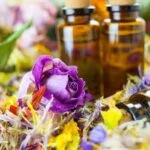Aromatherapy has gained significant popularity as a natural and holistic approach to relieving stress and promoting overall well-being. The use of essential oils to enhance physical and psychological health has been practiced for centuries, with its roots dating back to ancient civilizations. In recent years, the concept of aromatherapy has captured the attention of people seeking effective ways to manage the everyday stresses of life.
Aromatherapy is based on the belief that inhaling aromatic plant compounds can have therapeutic effects on the body and mind. This practice involves utilizing essential oils derived from various plants, such as lavender, chamomile, and bergamot, to promote relaxation, reduce anxiety, and improve mood. Whether it is through inhalation or topical application, these essential oils stimulate receptors in the nose or skin, triggering chemical reactions that influence emotions, hormones, and other physiological processes.
The rising interest in aromatherapy can be attributed to its non-invasive nature and absence of harmful side effects compared to conventional stress-relief methods. With more individuals prioritizing self-care and seeking natural alternatives for stress management, aromatherapy offers a gentle yet powerful solution. By harnessing the therapeutic properties of fragrant oils derived from plants, aromatherapy presents an accessible way for individuals to find relief from chronic stress and improve their overall well-being.
The Science Behind Aromatherapy
Aromatherapy is a popular stress-relief technique that utilizes the power of essential oils to bring about relaxation and tranquility. While its effectiveness has been widely recognized, many people wonder how exactly aromatherapy works to provide these therapeutic benefits. In this section, we will delve into the science behind aromatherapy and explore the physiological and psychological mechanisms through which it affects the brain and body.
One of the primary ways in which aromatherapy relieves stress is through its impact on the limbic system, which is responsible for controlling emotions, memories, and arousal. When we inhale essential oils, their molecules travel through the olfactory system and stimulate the olfactory bulb in our brains. The olfactory bulb then sends signals to various areas of the limbic system, including the amygdala and hippocampus, resulting in emotional responses and memory recall.
Another important mechanism of action is through direct absorption of essential oil compounds into the bloodstream. When essential oils are applied topically or used during massages or baths, their bioactive molecules penetrate through the skin barrier and enter circulation. From there, they can reach different organs and systems in the body, exerting their beneficial effects.
Research has shown that specific essential oils have distinct chemical compositions that contribute to their stress-relieving properties. For example, lavender oil contains compounds such as linalool and linalyl acetate that have sedative effects and can promote relaxation. Similarly, bergamot oil contains citrusy compounds like limonene that act as mood enhancers.
Overall, by targeting both physiological pathways (such as neurotransmitter release) and psychological pathways (including emotions and memories), aromatherapy has a multi-faceted approach to relieving stress. It provides a holistic means of addressing stress from both a mind-body perspective.
| Study | Findings |
|---|---|
| 1. Field, T., et al. (2005) | Aromatherapy massage using lavender and chamomile oils significantly reduced stress and anxiety levels in participants. |
| 2. Lehrner, J., et al. (2005) | Vetiver oil inhalation resulted in decreased physiological indicators of stress, such as blood pressure and heart rate, in a study involving nurses. |
| 3. Hirokawa, K., et al. (2019) | Lemon aroma inhalation was found to reduce psychological stress responses and increase positive mood among university students. |
These studies provide just a glimpse into the growing body of scientific evidence supporting the effectiveness of aromatherapy in relieving stress. By understanding the science behind aromatherapy, individuals can better appreciate its potential benefits and make informed decisions about incorporating it into their well-being practices.
Stress and its Effects on the Body
Chronic stress can have a detrimental effect on our bodies, both physically and mentally. When we experience stress, our body releases cortisol, also known as the stress hormone. This hormone helps us respond to stressful situations by increasing heart rate, blood pressure, and glucose levels. However, if stress becomes chronic, these heightened levels of cortisol can wreak havoc on our bodies.
One major system affected by chronic stress is the immune system. Research has shown that prolonged exposure to stress weakens the immune system’s response, making us more susceptible to infections and diseases. Additionally, chronic stress can lead to inflammation in the body, which has been linked to a variety of health conditions such as heart disease, diabetes, and certain types of cancer.
Furthermore, chronic stress can negatively impact our cardiovascular health. High levels of cortisol over an extended period of time can increase blood pressure and cholesterol levels. This puts strain on the heart and increases the risk of developing heart disease or experiencing a heart attack. Stress can also contribute to the formation of plaque in arteries, further compromising cardiovascular health.
To mitigate these negative effects of chronic stress on our bodies, it is crucial to find effective stress-relief techniques like aromatherapy. Aromatherapy works by stimulating certain receptors in our brain that are connected to emotions and memory. This stimulation promotes relaxation and reduces feelings of anxiety and stress.
Incorporating aromatherapy into your daily routine through methods like diffusing essential oils or using them in baths or massages can help regulate cortisol levels and promote overall well-being. By utilizing specific essential oils like lavender or chamomile known for their calming properties, individuals can experience relief from the physical symptoms associated with chronic stress while also enjoying a momentary escape from their worries.
Why Choose Aromatherapy as a Stress-Relief Method
Aromatherapy offers a unique and advantageous approach to stress relief when compared to other techniques. It provides a natural and holistic way to address the negative effects of stress on the body and mind. By understanding these advantages, individuals can make informed decisions about incorporating aromatherapy into their daily routines.
Natural and Safe
One of the key advantages of aromatherapy as a stress-relief method is its natural and safe nature. Essential oils used in aromatherapy are derived from plants, making them a natural alternative to synthetic medications or treatments. This can be particularly appealing for those who prefer a more organic approach or who may have concerns about potential side effects or dependencies associated with pharmaceutical options.
Furthermore, essential oils used in aromatherapy are generally well-tolerated by most individuals when used correctly. However, it is important to note that some people may have allergies or sensitivities to certain oils, so it is essential to perform a patch test before regular use. Additionally, pregnant women, individuals with certain medical conditions, or those taking specific medications should consult with their healthcare provider before using essential oils.
Multi-Faceted Approach
Aromatherapy takes a holistic approach to stress relief by addressing both the physical and psychological aspects of well-being. It recognizes that stress affects not only the mind but also the body, and aims to address this through various mechanisms.
When inhaled or applied topically, essential oils interact with the limbic system in the brain, which plays a vital role in emotions and memory. This interaction helps stimulate certain neurotransmitters like serotonin and dopamine, promoting relaxation and mood enhancement. Moreover, certain compounds found in essential oils possess sedative properties that can help calm the nervous system and promote better sleep quality-one common issue among individuals experiencing chronic stress.
In addition to its psychological benefits, aromatherapy also offers physical advantages for stress relief. Certain essential oils have been found to have anti-inflammatory properties, which can help reduce the inflammation that often accompanies prolonged stress. Additionally, aromatherapy techniques like massages and baths with essential oils can also help alleviate muscle tension and promote relaxation throughout the body.
Customizable and Personal
Another advantage of aromatherapy is its flexibility and adaptability to individual needs. With a wide range of essential oils available, each with its own unique scent and therapeutic properties, aromatherapy allows individuals to customize their approach to stress relief. Whether someone prefers floral scents like lavender or invigorating scents like citrus, there is an essential oil that caters to their preferences.
Furthermore, individuals can also experiment with different methods of using aromatherapy for stress relief. Aromatherapy can be incorporated into daily routines through diffusing oils in the air, adding them to baths or showers, applying them topically through massage or compresses, or even creating personalized blends for specific purposes.
Essential Oils for Stress Relief
Aromatherapy relies on the use of essential oils, natural plant extracts that have been found to promote relaxation and relieve stress. Among the wide array of essential oils available, some stand out as particularly effective in reducing stress and anxiety. Lavender is perhaps the most well-known and widely used essential oil for stress relief.
It has been shown to promote calmness and induce a sense of relaxation. In addition to its soothing aroma, lavender has also been found to lower heart rate and blood pressure, further aiding in stress reduction.
Chamomile is another key player when it comes to alleviating stress through aromatherapy. Its gentle floral scent has long been associated with relaxation and peaceful sleep. Chamomile essential oil contains compounds that act as natural sedatives and can help reduce feelings of anxiety and tension. Whether used in a diffuser or applied topically through massage or bath products, chamomile can provide a soothing effect on both the mind and body.
Bergamot is an essential oil known for its uplifting properties that can aid in relieving stress. Derived from the peel of the bergamot orange fruit, this citrusy oil has a bright and refreshing aroma that helps alleviate feelings of fatigue or lethargy often associated with chronic stress. Bergamot essential oil is particularly useful for individuals experiencing mild depressive symptoms as it can enhance mood and promote a more positive outlook.
While these three essential oils are well-regarded for their stress-relieving abilities, it’s important to note that everyone may respond differently to aromatherapy. Individuals interested in using aromatherapy should experiment with different oils to find what works best for them personally.
Furthermore, it’s crucial to ensure that high-quality essential oils are used, as purity and potency can greatly affect their therapeutic benefits. By exploring the myriad options of essential oils available, individuals can find their own unique blend to help them combat stress and promote a greater sense of well-being.
How to Use Aromatherapy for Stress Relief
Aromatherapy offers a wide range of techniques and methods for using essential oils to relieve stress and promote relaxation. Incorporating aromatherapy into your daily routine can be a simple and effective way to manage stress and improve your overall well-being. Here are some practical tips and methods for using aromatherapy for stress relief:
Diffusing Essential Oils
One of the easiest ways to incorporate aromatherapy into your daily routine is by using a diffuser. A diffuser disperses essential oils into the air, allowing you to benefit from their therapeutic properties through inhalation. Simply add a few drops of your chosen essential oil or a blend of oils to the water in the diffuser, turn it on, and enjoy the soothing scent as it fills the room.
Baths and Massages
Another effective method of using aromatherapy for stress relief is through baths or massages. Adding a few drops of essential oil to your bathwater can create a relaxing and aromatic experience. Lavender oil, for example, is known for its calming effects, so adding it to your bath can help you unwind after a long day. Similarly, incorporating essential oils into massage oils or lotions can enhance relaxation and provide additional benefits like muscle tension relief.
Creating Personalized Blends
One of the great things about aromatherapy is that it allows you to customize blends based on your individual needs and preferences. By combining different essential oils, you can create personalized blends that target specific types of stress or promote relaxation in unique ways. Experiment with mixing different oils together and find combinations that work best for you.
It’s important to note that everybody reacts differently to essential oils, so start with a low concentration and gradually increase if needed. Additionally, always research individual oils before use as some may have contraindications or potential side effects. Overall, incorporating aromatherapy into your daily routine can be a simple and enjoyable way to relieve stress and improve your overall well-being.
Personal Experiences
Aromatherapy has gained popularity as a natural and holistic approach to managing stress. Countless individuals have turned to this practice to find relief and improve their mental well-being. In this section, we will share personal experiences, anecdotes, and testimonials from individuals who have successfully used aromatherapy for stress relief.
One individual, Sarah, was constantly overwhelmed with work-related stress. She decided to try aromatherapy after hearing about its benefits from a friend. Sarah started using lavender essential oil in a diffuser at home. She found that the soothing scent helped her relax and unwind after long, stressful days at work. Sarah noticed a significant improvement in her sleep quality and overall mood since incorporating aromatherapy into her routine.
Another individual, Mike, suffered from anxiety and panic attacks. He discovered the calming effects of chamomile essential oil through aromatherapy. Mike carried a small bottle of chamomile oil with him wherever he went and would inhale its fragrance whenever he felt anxious or overwhelmed. The comforting aroma helped him regulate his breathing and reduce the severity of his panic attacks. Mike expressed gratitude for having found a natural solution that provided him with immediate relief during challenging moments.
Testimonials like these highlight the positive impact that aromatherapy can have on an individual’s mental well-being. These personal experiences demonstrate how essential oils can be powerful tools in managing stress by promoting relaxation, alleviating anxiety, and improving overall mood.
| Name | Experiences |
|---|---|
| Sarah | After using lavender essential oil in a diffuser at home, Sarah noticed significant improvements in sleep quality and overall mood. |
| Mike | Chamomile essential oil helped Mike manage his anxiety and panic attacks by inhaling its fragrance whenever he felt overwhelmed or anxious. |
Scientific Studies and Research
Aromatherapy has gained popularity as a stress-relief technique, and recent scientific studies and clinical trials have provided evidence to support its effectiveness. These studies explore the physiological and psychological mechanisms behind how aromatherapy affects the brain and body to bring stress relief.
One study conducted at a university medical center found that participants who were exposed to lavender essential oil during a stressful situation experienced decreased levels of anxiety and increased feelings of calmness compared to those who did not receive exposure to lavender oil.
Another study published in the Journal of Alternative and Complementary Medicine showed that participants who received aromatherapy massage with an essential oil blend including bergamot experienced reduced blood pressure, heart rate, and cortisol levels – all markers of stress reduction.
Furthermore, research has shown that inhaling certain essential oils can increase the production of neurotransmitters such as serotonin and dopamine, which are associated with feelings of relaxation and happiness. The aroma compounds in these oils stimulate olfactory receptors in the nose, sending signals to the limbic system – the part of the brain responsible for emotions – which contributes to their calming effects.
Clinical trials have also demonstrated positive results for specific essential oils in relieving stress. Chamomile oil, for example, has been found to promote relaxation and improve sleep quality among individuals with generalized anxiety disorder. Additionally, findings from a study published in Evidence-Based Complementary and Alternative Medicine suggest that ylang-ylang essential oil may help reduce stress levels by regulating autonomic nervous system activity.
These scientific studies and clinical trials provide strong evidence for the effectiveness of aromatherapy in relieving stress. By understanding how specific essential oils affect our physiology and trigger relaxation responses in our bodies, we can confidently incorporate aromatherapy into our daily routines as a natural method for stress relief.
Precautions and Considerations
While aromatherapy can be a highly beneficial and effective stress-relief method, it is important to be aware of potential risks, allergies, and sensitivities associated with essential oils. Some individuals may have adverse reactions or allergies to certain oils, which could further exacerbate their stress levels or lead to other health issues. Therefore, it is crucial to consider these precautions before incorporating aromatherapy into your routine.
Firstly, it is essential to remember that essential oils are highly concentrated plant extracts. This means that they should not be applied directly onto the skin without dilution. Applying undiluted essential oils can cause skin irritation or even burns. It is recommended to dilute essential oils by adding a few drops to a carrier oil, such as jojoba oil or coconut oil, before applying them topically.
Additionally, some essential oils may pose risks during pregnancy or for individuals with specific medical conditions. Pregnant women should use caution when using certain essential oils as they can affect hormone levels and potentially harm the developing fetus. Similarly, individuals with asthma or respiratory conditions should avoid using strong-smelling essential oils that can trigger breathing difficulties.
Moreover, it is important to note that not all essential oils are safe for ingestion. Some essential oils are toxic if swallowed and can cause serious health problems. If you plan on ingesting an essential oil for therapeutic purposes, ensure that the oil is labeled as safe for internal use and consult with a qualified healthcare professional first.
Lastly, it is vital to keep in mind that everyone’s body chemistry reacts differently to various substances. Before using any new essential oil for the first time, perform a patch test on a small area of skin to check for any allergic reactions or sensitivities.
To ensure safe usage of aromatherapy, always consult with a qualified aromatherapist or healthcare professional who can provide personalized advice based on your specific circumstances. By adhering to safety guidelines and taking necessary precautions, you can enjoy the stress-relieving benefits of aromatherapy without any adverse effects.
Conclusion
In conclusion, aromatherapy has emerged as a popular and effective stress-relief technique. Throughout this article, we have explored the science behind aromatherapy and its impact on the brain and body, as well as the harmful effects of chronic stress on various bodily systems. We have also delved into why aromatherapy is a unique and advantageous stress-relief method, thanks to its natural and holistic approach.
Moreover, we have identified some of the most effective essential oils used in aromatherapy for stress relief, such as lavender, chamomile, and bergamot. These oils possess specific benefits that can help individuals manage their stress levels effectively. Additionally, we provided practical tips on incorporating aromatherapy into daily routines through diffusing oils, using them in baths or massages, and creating personalized blends.
Furthermore, personal anecdotes and scientific studies have validated the effectiveness of aromatherapy in relieving stress. Real-life experiences showcase how individuals have successfully used aromatherapy to manage their stress levels and improve their mental well-being. Meanwhile, scientific research demonstrates the evidence-based nature of this practice.
In light of these findings, it is clear that aromatherapy holds proven benefits for relieving stress. It offers a natural and holistic approach that can be integrated seamlessly into one’s daily routine. Therefore, I encourage you to give aromatherapy a try for your own well-being.
Incorporate essential oils into your life and experience the positive impact they can have on reducing stress levels and promoting overall relaxation. By embracing this ancient practice in our modern lifestyles, we can find solace from the pressures of everyday life while nurturing our mind and body.
Frequently Asked Questions
What is the benefits of aromatherapy?
Aromatherapy offers several benefits for overall well-being. One of the primary advantages is its ability to promote relaxation and stress relief. Different essential oils, when inhaled or used topically, can trigger a calming response in the body and mind, helping to reduce anxiety and soothe a busy mind.
Additionally, certain scents can provide an energy boost, enhance focus, improve sleep quality, and uplift mood. Aromatherapy has also been found useful in managing pain and reducing inflammation. Moreover, it is a non-invasive and natural approach that can be easily incorporated into one’s daily routine.
Does aromatherapy actually work for anxiety?
Aromatherapy has shown promising results as a complementary therapy for anxiety management. While it may not completely cure or eliminate anxiety disorders on its own, it can effectively alleviate symptoms and improve overall well-being. When specific essential oils are diffused or applied topically, they can activate brain receptors linked to emotions and help regulate the autonomic nervous system’s response to stressors.
Certain scents like lavender, chamomile, bergamot, or ylang-ylang have been commonly used to induce relaxation and reduce anxiety symptoms such as restlessness or racing thoughts. However, individual responses may vary, so it is essential to find the right scent that works best for each person.
How does aromatherapy help anxiety and depression?
Aromatherapy can play a significant role in supporting individuals with anxiety and depression by providing relief from emotional distress and promoting mental well-being. The inhalation of certain essential oils stimulates the olfactory system in the brain which triggers reactions within the limbic system – an area closely associated with emotions and memory formation.
This interaction helps regulate hormonal responses related to stress while also increasing the production of neurotransmitters associated with relaxation and happiness like serotonin or dopamine.

Are you looking for a natural way to improve your health and wellbeing?
If so, aromatherapy may be the answer for you.





